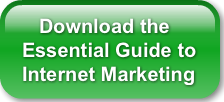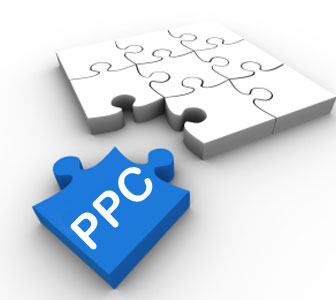 Another great post from ASBTDC Directory, Herb Lawrence
Another great post from ASBTDC Directory, Herb Lawrence


Where did my customers go ?
As small business owners continue to deal with the ongoing recession, many are asking “Where did my customers go?” Plummeting 4th quarter sales will continue into 2009. Don’t expect to see any relief until possibly the 4th quarter of 2009. So what are small businesses to do? Sitting back is not an option, most of them don’t have enough cash to “turtle down” until the recession peters out so it means either go ahead and close the doors now or learn how to reconnect with your customers and keeps your business growing despite the economy.
What I Can Live Without
The other day I received an excellent 4 page report entitled, “Cash-Strapped Customers Are Cutting Back on (Almost) Everything” by Susan Reda, Executive Editor for NFR’s Stores an on-line marketing news service. The study, conducted by BIGresearch and Stores is a must read for every small business owner shedding light on what your customers are thinking about. Great information about what consumers consider “must keep” and what “I can live without”. If your holiday sales were less than hoped for, this report will not only tell you why customers stayed away and why they will not be rushing back anytime soon. To read this article go to http://www.stores.org.
Obviously there is a lot of powerful information in the report and I will be sharing it with my small business clients at the Small Business and Technology Development Center. But in addition to the nuts and bolts of what they are buying and what they are leaving on the shelf, the article brings out three very specific concepts I feel are just as important.
These three “nuggets” go way beyond the statistics in the report
First: Consumer attitudes and spending behaviors are not static or chiseled on stone tablets. Goods and services that were considered “must have” two or three years ago when the economy was rocking along are suddenly on the chopping block.
- Median income households then thought the only way to keep in shape was to buy membership at state-of-the art fitness centers.
- Middle income women thought nothing of adding upscale handbags to their accessory collections on a regular basis, and
- Eating out at nice restaurants with $30-50 entrees was given at least once a week.
So owners of fitness centers, boutiques and good restaurants built their business models around these consumer attitudes, and three years ago these were valid assumptions. But as this study points out, guess what consumers have decided isn’t as important anymore? You got it…they can save money by:
- not renewing their membership to the fitness center and just work out at home,
- while they still buy apparel they are hitting the local discount stores instead of the boutiques, and,
- Many consumers are renewing their love affair with the drive thru window at local fast food places instead of the full service restaurant.
Bottom line, what was a valid assumption three years ago is no longer correct in today’s economy. Consumer behavior is NOT static, it changes based on outside factors and the small business owner must be able to read these changes and adjust to meet these new realities.
Second: Because consumer behavior is not static, small business owners must learn to continually be scanning their environment for changes. Before launching your new venture you spent hours, days or even months studying the feasibility of your project to ensure the best probability of success. You studied consumer attitudes about your product or service, you analyzed the market and your competitors to learn all you could before launching that fitness center.
But then you stopped doing your homework, became complacent and your consumers have switched gears on you. The lesson here is that a small business owner can never stop getting updated information necessary to make changes to his business model as his environment changes.
Keep up to date
I received this Stores report the other day in my in box from my e-mail. It is just one of a dozen daily e-newsletters I receive electronically on a variety of topics that are important to my clients. I dedicate a minimum of one hour a day just reading these articles to find items that are relevant and then pass them on to my clients or filing away for a future article or seminar and to ensure I am up to date on latest trends.
A small business owner needs to do the same. You don’t have to get dozens of reports daily like I do, but you need to find one or two that are relevant to your industry or your market, subscribe to them (most are free) and discipline yourself to read, think, and act on the information that will affect your business.
This is one area that many of my small business clients do not do as good a job at as they should. They are so busy with the day-to-day operations that they don’t take the extra hour in the day to gather intelligence to help them plan for what will be happening next month or next year.
Of course thanks to the Internet (more on that further on) you can easily be completely overwhelmed by the volume of information that is available, so it is important to decide what sources you need to have and what you do not. If you are a small retailer or service business I would strongly suggest that you start with your trade publications or association e-newsletters. Another excellent source that we use at the ASU SBTDC comes from an on-line e-news service called SmartBrief. The service provides free, e-mail based news summaries and other content for industry associations, professional organizations, advocacy groups and their constituents. You can chose to subscribe to any of dozens of special e-newsletters in that impact your industry at no charge. To search for free subscriptions relevant to your business, go to www.smartbrief.com and sign up.
As with any information it is only valuable if you actually use it. That means subscribe, discipline yourself to read regularly, consider the information and then act on the data.
Internet = Absolute Necessity
Finally something that may be a shock to many small businesses was that the vast majority of the consumers surveyed in the Stores study said that Their Internet service was an absolute necessity regardless of other cutting back on other expenses. 86% of the consumers (regardless of age) polled said that they would continue to pay to stay connected to the web. Of course if you are an internet service provider or sell computer hardware or software this is good news, but it has a much more far reaching implication to virtually every business owner who is reading this article regardless of the business you are in.
Because the internet is where your customers live and it is the new medium that you must use to communicate with them. It’s not just where your teenagers talk to their BFFs on MySpace, not just where grandma goes to do her genealogy. Or those sites dad surfs at night when he thinks everyone is in bed. Across the board in virtually all age categories the Internet is where they seek to do business with you.
Although some consumers prefer to make their actual purchase inside a store, a majority do their “window shopping” on-line first. Your customers were spending their time on-line searching for information about products or services that they want to buy, looking for the right features, prices and discounts. Once they found what they wanted, they then search on-line for the stores in their area that carried it before they set out to make the actual purchase.
That means if you don’t have a website for your business, you were virtually invisible to these potential customers. It is no longer a question of “should I have a website? In the 21st Century marketplace it is an absolute necessity even if you don’t actually sell your product or service on-line.
Internet marketing can take on any number of unique opportunities for you to connect and build relationships with the consumers you want to attract by sending e-mail messages, using e-coupons, providing them with information, and more.
At the ASU SBDTC we have virtually abandoned newspaper advertisement for workshops and drastically cut back on the number of training calendars we print and mail through the post office. Instead personalized messages are sent out to our clients by e-mail about specific workshops that we think would be of interest to them. Our training calendars are e-mailed on a quarterly basis with updates and the cost of e-mail postage is…zero.
In addition to expanded use of e-mail we are exploring internet marketing through social media networking. I write articles for blogs like this one that not only provide information of value to the reader but also markets our services and training because every article includes information about the ASBTDC and how to contact us electronically. I also maintain profiles on several social media networks such as FaceBook, Plaxo, LinkedIn, and Twitter as ways to connect and communicate with potential customers. These are just a few examples of internet marketing opportunities that more and more small businesses are learning to take advantage of to grow their businesses.
If words like viral marketing, twitter, search engine optimization, and social media networks sound like Greek to you, don’t despair there is plenty of help available to bring your business on-line in nice easy baby steps. But the most important concept here is that it is absolutely vital that your small business start to develop an effective web presence and to start to take advantage of the tremendous marketing opportunities available through the Internet. I guarantee your competitors are already there.
I try to keep my articles to a maximum of three topics to ensure they are easily digestible by readers so it is time to bring this to a close. The most important idea that I hope any small business owner takes away from this is that it is not enough just to unlock the front door of your store, flip on the “Open” sign, throw some advertisements at the local newspaper and then sit back for customers to beat a path to your door.
To remain competitive in these difficult economic times small business owners must:
- Understand and adjust their business to the new economic realities of consumer spending. What worked last year is not going to work now.
- Commit to continual education and research of news affecting your business is vital to adjusting your business model and developing effective product or service mixes that will appeal to your customers
- Embrace the new realities of the electronic age where every business owner must not just accept the Internet but learn to take advantage of the tremendous marketing potential it provides to them to communicate with customers on a personal level never before possible.
For many small business owners these may seem daunting tasks but survival in this new economic landscape will not come from “business as usual”.
Mountain Home Chamber of Commerce has partnered with the ASU Small Business and Technology Development Center to provide its membership with free and confidential consulting assistance from marketing, market research, cash flow planning to e-commerce. The Chamber and the ASU SBTDC are offering a variety of short 3 hour seminars in the Mountain Home area over the next three months covering topics vital to your business success such as Simple Market Research Tools, Recession Proofing Your Business, E-Commerce and Web Design, Guerrilla Marketing and much more.
Thanks to a partnership with The Baxter County Library, Community First National Bank, First National Banking Company (FNBC), and Liberty Bank of Arkansas your chamber is able to offer these invaluable seminars at significantly reduced rates and even better discounts for its membership.
For more information about the Chamber-ASU SBTDC consulting services and workshops call the Arkansas State University Small Business & Technology Development Center at (870) 972-3517 or e-mail [email protected] to give your business the edge it needs.
Coming Recession Proofing Your Business Seminars:
- Mountain Home – Tuesday, February 17th 6-9 pm Baxter County Library 424 West 7th Avenue
- Batesville – Thursday, February 19th 6-9 pm UACCB Independence Hall Room 104
Call the ASU SBTDC (870) 972-3517 or e-mail [email protected] to register for any of these. Batesville and Mountain Home attendees ask about Chamber membership discounts.
 PPC advertisers often send users to their homepage. This is usually a big mistake. Have you ever been searching for something specific, say a diamond ring, and click on a PPC ad only to be taken to the homepage of a jewelry store? Then you have to search the store’s website for diamond rings. Why didn’t the PPC ad take you to the jewelry store’s page with diamond ring? Probably because the person setting up the ad did not know better or was too lazy to set it up.
PPC advertisers often send users to their homepage. This is usually a big mistake. Have you ever been searching for something specific, say a diamond ring, and click on a PPC ad only to be taken to the homepage of a jewelry store? Then you have to search the store’s website for diamond rings. Why didn’t the PPC ad take you to the jewelry store’s page with diamond ring? Probably because the person setting up the ad did not know better or was too lazy to set it up.
 Clients often ask if they should use pay per click (PPC) advertising. And our answer always depends upon the client and her website.
Clients often ask if they should use pay per click (PPC) advertising. And our answer always depends upon the client and her website.

 Another great post from ASBTDC Directory, Herb Lawrence
Another great post from ASBTDC Directory, Herb Lawrence